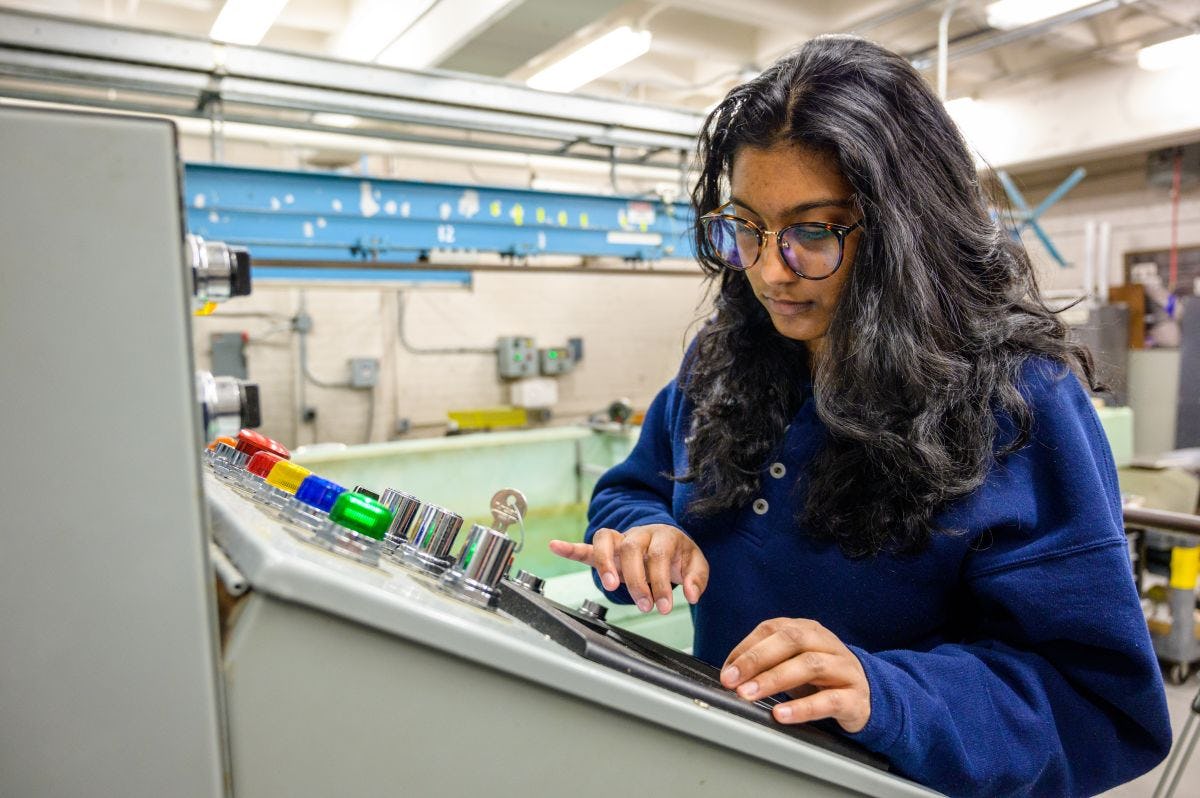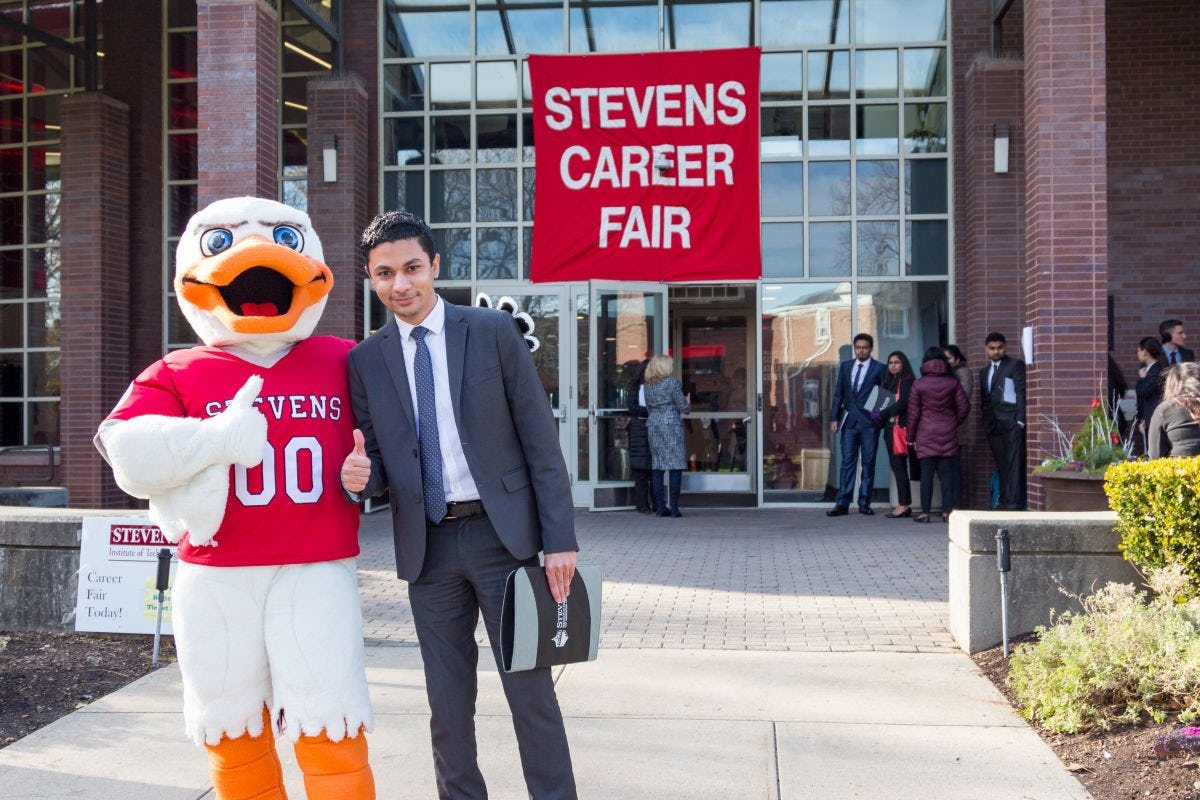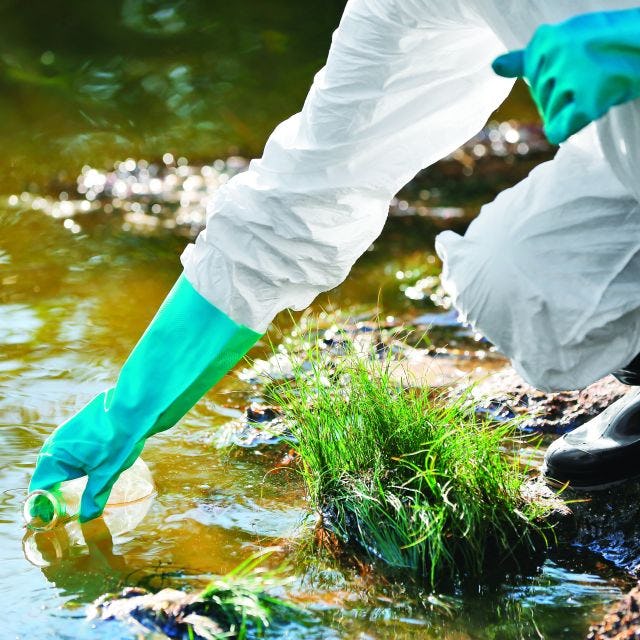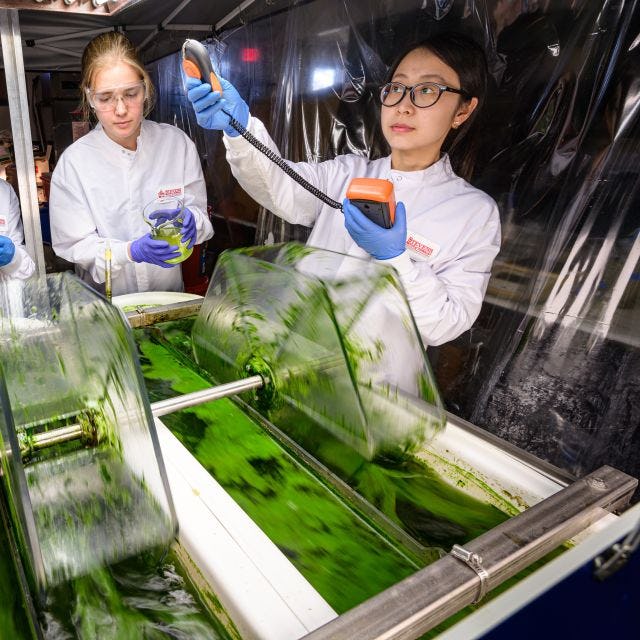
Bachelor's Degree in Environmental Engineering
Program Details
Degree
Bachelor of EngineeringAvailable
On campusHone the skills and knowledge necessary to find solutions to today’s most pressing environmental issues.
Environmental engineers develop creative solutions to globally-relevant challenges like safe drinking water, hazardous waste treatment, the fate and transport of environmental pollutants, and climate change–for the benefit of both humankind and nature.
The environmental engineering bachelor’s program at Stevens has a strong foundation in process design, using material balance and reactor theory to integrate principles of physicochemical equilibrium and chemical and microbial kinetics to design treatment processes and analyze phenomena in the environment.
The program offers flexible courses that give you a broader study of environmental biology than other universities by including microbiology, ecology, and toxicology. The program culminates with a project-oriented, two-semester senior capstone design course focused around physicochemical and biochemical processes. You'll also have the opportunity to develop critical thinking skills by conducting cutting-edge research in state-of-the-art facilities such as the Center for Environmental Systems.
Located on the banks of the Hudson River, just minutes away from New York City and the Atlantic Ocean, Stevens is a prime location for the study of environmental engineering. Partnerships with the Port Authority of New York and New Jersey, the New Jersey Department of Transportation, and the United States Coast Guard provide ample opportunity for students to gain hands-on experience and develop projects that have a direct impact on the metropolitan waterfront.
The Stevens Advantage: Hands-On Learning, Real World Experience
At Stevens, you’ll learn to think like an engineer. Our design-focused curriculum features a hands-on course every semester that will instill you with broad, foundational knowledge, the complete fundamentals of engineering, and entrepreneurial thinking. Learn more about what makes an engineering education from Stevens a unique experience:
The Design Spine: a unique, design-focused, hands-on course every semester that incorporates entrepreneurial thinking and experiential learning, culminating with Senior Design, a team capstone project working on prototypes for real business problems, potentially in collaboration with a real company
Innovation Expo: an exciting design and entrepreneurship competition where students showcase their senior design prototypes and pitch business ideas
Engineering Cooperative Education Program: nearly 30% of all engineering students participate in Stevens’ Cooperative Education Program where you get on-the-job experience working for real companies
State-of-the-Art Research Labs and Facilities: build, tinker and test your designs in Stevens' MakerCenter, Prototype and Object Fabrication Lab, or numerous other research facilities
Undergraduate Research Opportunities: our research-oriented curriculum gives you in-the-lab experience while you're still an undergraduate student
More opportunities for Stevens undergraduate students include:
Double count undergraduate course credits toward a graduate degree and earn your master's faster – in just five years through Stevens' Accelerated Master's Program >
See what it's like to be a civil, environmental, or naval engineer at Stevens by visiting the links below.
An ABET Accredited Program
The Bachelor of Engineering in Environmental Engineering program is accredited by the Engineering Accreditation Commission of ABET, https://www.abet.org, under the commission’s General Criteria and the Program Criteria for Environmental and Similarly Named Engineering Programs.
Mission
The environmental engineering program introduces students to cutting-edge research in state-of-the-art facilities and offers opportunities to work with several local government agencies. In doing so, it provides a broad-based education that prepares students in the technical and social fundamentals that will enable them to have a wide impact in the improvement of interactions between humans and their environment.
Program Educational Objectives
To achieve its mission, the environmental engineering program has established the following program educational objectives:
Graduates of our program will be recognized as being among “the best in the business” by their peers by leveraging their strong technical basis to continuously increase their skills and knowledge in their area of expertise and will develop the qualifications for licensure
Graduates of the program will have a positive impact on their workplace through multidisciplinary collaboration, teamwork, communication skills, and leadership
Graduates of our program effectively navigate important contextual factors in their careers, including the historical, regulatory, political, policy, economic, ethical, and public relations aspects of sustainability and environmental issues
Many graduates pursue advanced study in civil engineering, systems engineering, consulting, business, law, and other fields.
Student Outcomes
By the time of graduation, students majoring in environmental engineering will have the ability to:
Identify, formulate, and solve complex engineering problems by applying principles of engineering, science, and mathematics
Apply engineering design to produce solutions that meet specified needs with consideration of public health, safety, and welfare, as well as global, cultural, social, environmental, and economic factors
Communicate effectively with a range of audiences
Recognize ethical and professional responsibilities in engineering situations and make informed judgments, which must consider the impact of engineering solutions in global, economic, environmental, and societal contexts
Function effectively on a team whose members together provide leadership, create a collaborative and inclusive environment, establish goals, plan tasks, and meet objectives
Develop and conduct appropriate experimentation, analyze and interpret data, and use engineering judgment to draw conclusions
Acquire and apply new knowledge as needed, using appropriate learning strategies
Understand the steps involved in taking a technology from conception to market, and can demonstrate these steps by an actual or hypothetical example
Putting You on Track for Professional Success
Environmental Engineering Careers
The environmental engineering bachelor’s program develops in-demand knowledge and skills to put you on track for career success. Career opportunities include:
Environmental Engineer
Water Resources Engineer
Environmental Compliance Specialist
Field Engineer
Environmental Scientist
Safety and Environmental Compliance Engineer
Companies Hiring Environmental Engineers:
TRC Consultants, New Jersey Department of Environmental Protection (NJDEP), Municipality of Hoboken, Langan, Arcadia, New York Department of Environmental Protection (NYDEP)
A Tech Forward Education
Undergraduate Programs Facts & Statistics
Related Programs
Bachelor's Degree in Civil Engineering
Learn the versatile skill set needed to build a successful career in civil engineering.
Bachelor's Degree in Engineering - Naval Engineering Concentration
At Stevens, you’ll develop the foundational skills today’s naval engineers need in one of the nation’s highly regarded engineering programs.





